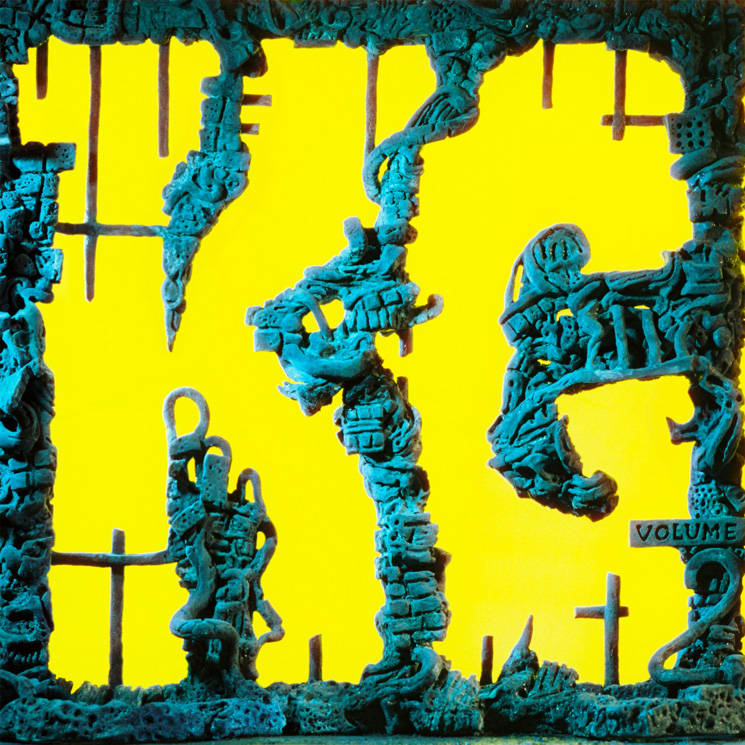Prolific psych-roch shapeshifters, King Gizzard & the Lizard Wizard have released their 16th studio album, marking 10 years as an active band.
K.G. distorts and disputes Western instrumental formulas, building on the tonal experimentations of 2017's Flying Microtonal Banana. Shaped during lockdown, with each of the six members composing and recording from their own quarantine quarters, it covers different patches of familiar Gizzard territory: the doomsday prophesization of "Automation" and the apocalyptic thrashing of "The Hungry Wolf of Fate" ring reminiscent of Infest the Rats' Nest, while the mellow meditations of tracks like "Honey" hark back to the folkier terrain of Oddments. On "Intrasport," they take on space disco, swapping Eastern folk-guitar melodies for synthetic new wave rhythms. The ten tracks are held together by a jittering pulse; for an album formed with such distance between its makers, K. G. pulls off an impressive sense of immediacy.
In the end, patterns abound, and an Apollonian orderliness prevails. There is little to be surprised by on K.G, but perhaps its recognizability is a testament to the band's certainty of who they are, what they are here to do, and their intention to not stop any time soon.
(Flightless Records)K.G. distorts and disputes Western instrumental formulas, building on the tonal experimentations of 2017's Flying Microtonal Banana. Shaped during lockdown, with each of the six members composing and recording from their own quarantine quarters, it covers different patches of familiar Gizzard territory: the doomsday prophesization of "Automation" and the apocalyptic thrashing of "The Hungry Wolf of Fate" ring reminiscent of Infest the Rats' Nest, while the mellow meditations of tracks like "Honey" hark back to the folkier terrain of Oddments. On "Intrasport," they take on space disco, swapping Eastern folk-guitar melodies for synthetic new wave rhythms. The ten tracks are held together by a jittering pulse; for an album formed with such distance between its makers, K. G. pulls off an impressive sense of immediacy.
In the end, patterns abound, and an Apollonian orderliness prevails. There is little to be surprised by on K.G, but perhaps its recognizability is a testament to the band's certainty of who they are, what they are here to do, and their intention to not stop any time soon.
